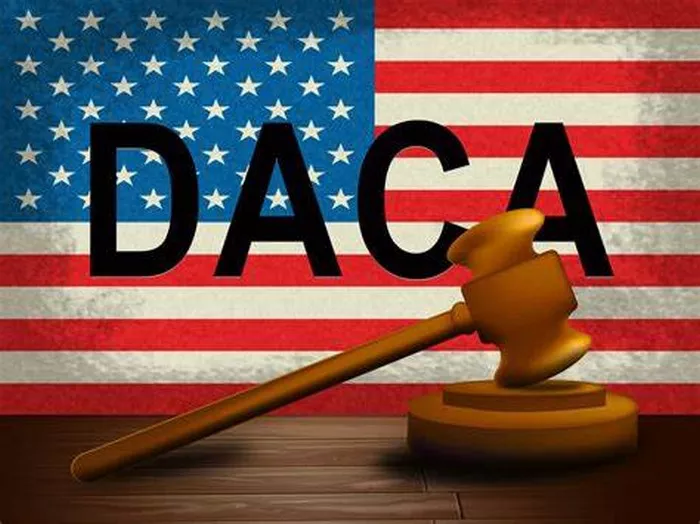The Deferred Action for Childhood Arrivals (DACA) program has been instrumental in providing temporary relief from deportation and work authorization to eligible undocumented immigrants who arrived in the United States as children. For recipients of DACA, the renewal process is crucial to maintain legal status and employment eligibility. One of the primary concerns among DACA recipients is the processing time for renewals, as delays can impact employment, travel, and overall stability. In this comprehensive article, we delve into the factors influencing DACA renewal processing times, steps involved in the renewal process, common reasons for delays, and strategies to navigate potential challenges.
Overview of DACA Renewal Process
The DACA renewal process allows current recipients to request an extension of their benefits for another two-year period. Renewal applications typically involve submitting forms, supporting documents, and payment of fees to the United States Citizenship and Immigration Services (USCIS). The key steps in the renewal process include:
Form I-821D, Consideration of Deferred Action for Childhood Arrivals: This form serves as the primary application for DACA renewal and requires applicants to provide updated information about their circumstances.
Form I-765, Application for Employment Authorization: Alongside Form I-821D, DACA recipients must submit Form I-765 to request continued authorization to work legally in the United States.
Form I-765WS, Worksheet: This form is used to calculate the renewal fee waiver eligibility, ensuring applicants meet financial criteria if seeking exemption from the renewal fees.
Supporting Documents: These may include identity documents, proof of residency in the United States since initial DACA approval, and any relevant updates or changes in circumstances.
Factors Influencing DACA Renewal Processing Times
Several factors contribute to the length of time it takes for USCIS to process DACA renewal applications. Understanding these factors can help manage expectations and prepare for potential delays:
USCIS Workload and Processing Times: USCIS processing times can vary based on overall workload, staffing levels, and administrative priorities. High volumes of applications or changes in immigration policies can affect processing times significantly.
Completeness and Accuracy of Applications: Incomplete or incorrectly filled-out applications can lead to delays as USCIS may request additional information or clarification, extending the overall processing time.
Background Checks and Security Clearances: Each DACA renewal application undergoes background checks and security screenings. Delays may occur if there are issues or discrepancies in the applicant’s background information.
Changes in Immigration Policies or Regulations: Shifts in immigration policy at the federal level can impact processing times and procedures for DACA renewals. Policy changes may introduce new requirements or alter existing processes.
USCIS Backlogs and Administrative Challenges: USCIS periodically faces backlogs and administrative challenges that can affect the timely processing of all types of immigration applications, including DACA renewals.
Typical Timeline for DACA Renewal Processing
While processing times can vary, USCIS aims to adjudicate DACA renewal applications within a reasonable timeframe. On average, DACA renewal processing times have ranged from a few months to over a year in some cases, depending on the factors mentioned above. It is essential for applicants to monitor USCIS updates on processing times and plan renewal submissions accordingly, ideally starting the renewal process well before their current DACA status expires.
Common Reasons for DACA Renewal Delays
Despite efforts to submit complete and accurate renewal applications, various issues can lead to delays in the processing of DACA renewals. Some common reasons include:
Incomplete Application Packages: Missing documents or incomplete forms can prompt USCIS to issue a Request for Evidence (RFE) or even a denial, prolonging the renewal process.
Criminal History or Disqualifying Factors: Changes in an applicant’s criminal history or new disqualifying factors since initial DACA approval may trigger additional scrutiny and processing delays.
Administrative Errors or USCIS Backlogs: Errors in USCIS processing, including lost documents or administrative oversights, can result in delays beyond the applicant’s control.
Policy Changes or Legal Challenges: Shifts in DACA policies or legal challenges affecting the program can introduce uncertainties and delays in renewal processing timelines.
SEE ALSO: WHO IS PROTECTED UNDER DACA? EVERYTHING YOU NEED TO KNOW
Strategies to Navigate DACA Renewal Challenges
Navigating potential challenges in the DACA renewal process requires careful planning and proactive steps. Here are strategies to consider:
Early Application Submission: Submitting DACA renewal applications well in advance of the expiration date allows for processing delays and unexpected issues.
Complete and Accurate Documentation: Ensuring all forms are completed accurately and all required documents are included reduces the likelihood of USCIS issuing an RFE or denial.
Legal Assistance and Guidance: Consulting with immigration attorneys or accredited representatives can provide valuable guidance on navigating the renewal process, especially in complex cases.
Monitoring USCIS Updates: Staying informed about USCIS processing times, policy changes, and updates via the USCIS website or other reliable sources helps manage expectations and plan accordingly.
Seeking Congressional or Community Support: Engaging with advocacy groups, community organizations, or congressional representatives can provide support and advocacy during the renewal process.
Conclusion
The DACA renewal process is a critical aspect of maintaining legal status and work authorization for eligible individuals brought to the United States as children. While USCIS aims to process DACA renewals in a timely manner, various factors can influence processing times and introduce delays. Understanding these factors, preparing a thorough application, and staying informed about policy changes are essential steps for navigating the DACA renewal process successfully. By taking proactive measures and seeking appropriate guidance when needed, DACA recipients can mitigate potential challenges and ensure continuity in their legal status and ability to work in the United States.


